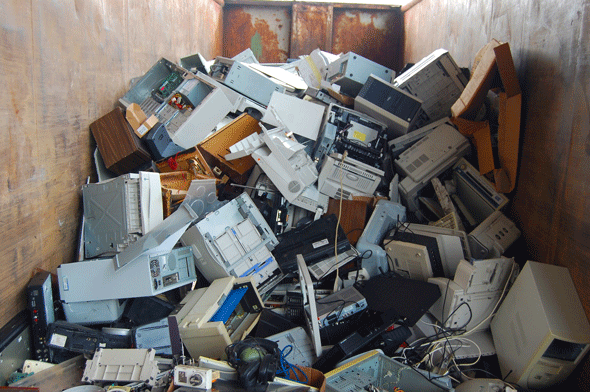HOW TO RECYCLE YOUR OLD COMPUTER? HERE’S HOW…
Reading Time: 3 minutes22nd December 2021 | Modified: 19th December 2022Categories: Tech News

A new widescreen screen arrives on your desk, along with a brand-new computer to power it. It has all the bells and whistles on it; Windows 10, Microsoft 365, virus and ransomware protection, all connected to a super-fast dedicated business leased internet line.
It’s just like Christmas, as the boxes open, all the kit is shiny and fabulous looking. And albeit that your old system was something similar, it was slower and its best days were behind it. Your eyes are glued on the new. Within 15 minutes your new equipment is the new heart of operations. So, what happens to your old equipment?
Often it’s thrown out, staff might give them to their kids, or it’s sold on eBay. But before any of that happens, the first stop has to be the deletion of all the information on it.
DELETE ALL PERSONAL INFORMATION
No matter what method you choose to exit your various technologies, the first thing to do is to back up your data. Make sure you have captured all your information onto disk, USB, cloud storage, etc. Sign out of all your online accounts, unpair it from any Bluetooth devices, etc, mouse, keyboard, wireless display. And then erase your computer’s hard drive, by degaussing the hard drive this demagnetises the data on the hard drive.
By doing this, all your business data will be removed, you will be taking your computer-ware back to the original state in which you bought it. Imagine, if were to throw out your old computers, out onto a skip, and think job done. Computer hackers will often check rubbish tips for old computers. They are always on the lookout for ways to hack into your business, and then hold your IT systems for ransom. Or, if you sell your old tech as scrap, what would happen if just one of those scrap computers had not been dealt with properly. Who’s to say that your equipment, once resold and fired up, that it suddenly gives them access to your network? Equally, if you intend to donate your old equipment to a charity, start-up company etc? And you’d like them to be able to use the old hard drive, then absolutely make sure to use the factory reset to wipe it of all information. But as a matter of best practice, at CNC we would always suggest removing the hard drive completely.
The great thing about Windows 10 (And Windows 8) is the Factory Restore function, or as most people call it a ‘factory reset’. Pop into the Start menu, type in reset, and press Reset this PC. You’ll be offered, ‘Remove everything’. Done. Sadly, Windows 7 does not have a reset action, so you’ll need to overwrite your files, it takes a little longer, but it acts in the same way. For Mac users, you’ll need to use a Start-Up disk, and press Erase. Job done.
WEEE WASTE
Many of us are familiar with WEEE Waste rules, but it’s always good to remind yourself. There is a good way of being environmentally friendly about your electronic waste, in a simple go-to way. Everything that has a plug on it comes under WEEE jurisdiction, and if you don’t follow the rules about how you exit your business tech, you can get seriously fined.
Regulations: waste electrical and electronic equipment (WEEE) – GOV.UK (www.gov.uk)
There are all sorts of rare earth materials in your old computer waste. So, if you decide to get rid of your old technology, find out where it’s being sent. So that it can be extracted safely and correctly. Sometimes it can just end up ignominiously in a landfill site, which is not good at all, as hazardous materials can leak out into the soil. Nor is it a good thing to give it to a company that is not ethically transparent about what it does next with your old tech. Some companies have been known to send it to a developing nation, where children are employed to pick through the bones of potentially hazardous materials to extract valuable materials, like gold.
And just a thought as to why you should consider recycling your computer tech. When the minerals are originally mined for your technology, lots of corrosive acids and carcinogenic toxins are used in the process to make a computer. Processing one ton of rare earth metals can produce nearly 2,000 tons of toxic waste. So, recycling your old kit ethically is a good way to go, to reduce the number of new minerals being mined for.


